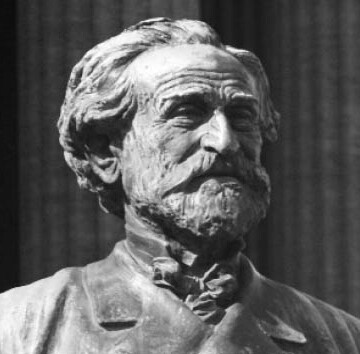The title of Joseph Pearce’s profound piece “Fighting the Dragon With Solzhenitsyn” (Society & Culture, January) hit me like a punch to the solar plexus, for Solzhenitsyn frequently directed its first three words to me in the form of a question—“Yeshche boryoutsya s drakonamy?”—as a sort of general “How goes it?” As a callow Harvard...
Author: Miscellaneous Authors (Miscellaneous Authors)
The Ides of April
I thank Mr. Jeff Minick for his letter “Blood From a Stone: Observations of a Serf” (Correspondence) in the January issue, on the burden of personal taxes and the sorts of things these onerous obligations fund. I do sympathize and empathize with his words. If I were as articulate as he, I would have written...
Storm of Snowflakes
Aaron D. Wolf has written the best summary I have seen of the moral confusion of the Millennials (“Rise of the Alt-Left: After This, the Deluge,” View, January): “Their morality is . . . entirely relativistic and personal. They are the world.” Wolf asks, “Who will teach them otherwise?” Yes, a very difficult reeducation problem...
Cross-Questioning
As a new subscriber to Chronicles, I was drawn to Chilton Williamson’s reply to Mr. Patterson in the December issue (“Start Somewhere,” Polemics & Exchanges). He wrote that “ideology by definition is silly.” It made me recall my late Austrian friend, Erik von Kuehnelt-Leddihn. Mr. Williamson may be aware of Erik’s 1981 article, “The Portland...
So Proudly We Hailed
Things are not so bad with the National Anthem as James O. Tate might think (“The Twilight’s Last Gleaming,” The Music Column, December). In October I attended the fall meeting of Keeneland Racetrack in Lexington, Kentucky. On one of the days, the announcer told us that the anthem would now be sung by a young...
Great Minds
I found Scott P. Richert’s article “Taking Back the Culture” (The Rockford Files, December) very interesting. It brings to mind Robert Nisbet’s central thesis that the medieval was an era of higher civilization, since it had power spread over a wide field, rather than the concentration of everything in one institution. Nisbet, as I understand...
Start Somewhere
I very much enjoyed Chilton Williamson’s “Class and Identity” (In Our Time, October), especially its vivid description of the leveling steamroller operated by liberalism across generations. Mr. Williamson also quite properly points out that the resulting individualistic, classless society still cannot wholly eradicate the longing for real distinctions and concrete identities. However, I think he...
Continuing Conversation
My name was invoked by Scott P. Richert in the October issue (What the Editors Are Reading), in reference to my comments on the avant-garde at a John Randolph Club years ago, during which I asked the rhetorical question, “What is creativity without editing?” Had someone actually replied, “Stephen King,” I would not have been...
Remains of the Day
Freddy Gray’s “Brexit: What Now?” (City of Westminster, September) reads like the continuation of the Remain campaign by other means. After a balanced opening, his article tilts like the final stages of the Titanic. Some instances. Donald Trump said, on the day of the result, “What I like is that I love to see people...
Being Necessary
In “An Aroused Populace—With Guns” (Sins of Omission, August), Roger D. McGrath tells of the reaction of the townsfolk in Northfield, Minnesota, to an attempted robbery of the local bank. His thesis is that a well-armed community, and only a well-armed community, has the immediate power to react to criminal invasions of any kind. In...
Dupe or No
Chronicles falls short of its usual high standards by giving so much space to “Faulkner in Japan: The ‘American Century’” in the August issue (Society & Culture). As far as I can tell amidst all the unanchored theorizing, the author wants to make America’s greatest writer out to be a clueless dupe of postwar “American...
Making Poetry Great Again
Please let this note serve as a belated acknowledgement that Dr. Allen Frederick Stein’s poem “Ralph Waldo Emerson Meets John Brown,” which appeared in the January issue, served as an enlightening study tool for 65 of my students at Warren Hills Regional High School in northern New Jersey during the recently concluded school year. Several...
Tunnel of Love
As both a fellow conservative and a fellow fan of Bruce Springsteen, I read with interest Scott P. Richert’s June column, “The Ties That Bind” (The Rockford Files), which is at once a loving tribute and a sad goodbye to “The Boss”—the latter because of Springsteen’s recent decision to cancel a concert in North Carolina...
Like a Snowball
Merle Haggard: truancy, auto theft, robbery, drug problems, prison in San Quentin, five-times married—all of this, according to your three writers in the June issue (Wayne Allensworth, Roger D. McGrath, Aaron D. Wolf). Talented musician? Yes. “Merle Haggard: A Conservative American”? When? I suggest you check the definitions of conservative and sociopath. I think I...
A Lannister Always Pays
After twice reading what so far has been available of George R.R. Martin’s A Song of Ice and Fire and viewing the first five seasons of Game of Thrones, I do not share Douglas Wilson’s impression that these are “rootless entertainment for a rootless people, lost entertainment for a lost people, and vile entertainment for...
One More From the Ace
Roger McGrath’s excellent account of the career of movie actor/naval aviator Wayne Morris (“Hollywood’s Lone Ace,” Sins of Omission, April) is not quite complete, in that Morris’s service to the Navy and the nation did not end with his discharge in 1945. A movie in which he played an important part helped save the important...
Reflections on Chronicles
The March issue (“Against Ideology”) was a brilliantly perceptive one, notably as it stresses the utmost importance, for any true conservative, of defending loyalties to local mores and traditions, small hometowns and family farms, regional cultures—things that have passed the test of time and matter most to real people. With such ideas I could not...
Written on the Subway Walls
In his March Correspondence, “EMP (‘Are You Experienced?’),” Christopher Sandford asks if rock music is truly an art. The Oxford Dictionary defines the arts as “various branches of creative activity such as painting, music, literature and dance.” The answer, therefore, is an obvious yes. So what is Mr. Sandford really getting at? He claims some...
Overlooked?
I thoroughly enjoyed the March issue (“Against Ideology”), and it is among the best Chronicles has produced. The kind of economy that Jack Trotter (“Capitalism: The Conservative Illusion,” View) and Scott P. Richert (“Economic Patriotism,” The Rockford Files) would consider ideal is the one that I would truly love to see. And unlike the proposals...
White and Wrong
In the February issue, “My Country—White or Wrong,” Chilton Williamson and Scott Richert criticize white nationalism. I write in reply as someone who has been called a “white nationalist”—whatever that term may mean. First, Mr. Williamson’s sensibilities are so close to my own that his critique may be based on a misunderstanding. He writes of...
Elliptical Critique
In the February issue, the editors take aim at people they call white nationalists, although their targets repudiate the name. As Richard Spencer explained to the Chicago Tribune (August 31, 2015), “I call myself an identitarian and not an American. I think whites will need to be post-American,” because for him America is a “failed...
Two Wrongs Don’t Make a White
Editor Chilton Williamson’s critique of the identitarian position delivers a typical conservative philippic from cloud level. “Identity politics, whether for whites or for others, is a form of narcissism that focuses the mind almost exclusively on the self and its vanities, precluding a true apprehension of society, solid intellectual activity, and a true understanding of...
Daughters in Combat
Aaron D. Wolf’s “Drafting Our Daughters” (Heresies, January) is an excellent article. Having served three tours in Vietnam as an artillery surveyor, forward observer, and civil-affairs team chief, I’ll make some additions. On December 3, Secretary of Defense Ash Carter demonstrated an incredible ignorance of infantry combat reality and a possible hatred of 18-year-old females. ...
Original Intent
In his article on his trip to Rome (“Buried in History,” Correspondence, January), Jeff Minick comments on the apparent decline of attendance at Mass. Italians for centuries have avoided the Mass, puzzling other Catholics when Italian immigrants began arriving in the United States. Italians expressed their faith mainly in large public processions such as those...
A Plane by Any Other Name
I enjoyed George McCartney’s review of Bridge of Spies in the December issue of Chronicles (“A Snow Job on Rodeo Drive,” In the Dark). However, Steven Spielberg was not “scrupulous” with the “physical details of time and place.” Gary Powers was shot down in a U-2A, yet in the movie we see a contemporary U-2S. ...
Taking Up the Pen
I have been a Chronicles subscriber for two or three years now, and I have never before contacted your office in response to a piece in your magazine. I have just finished reading “The Seven Stairs and AIDS” by Jeff Minick (Correspondence, December). In a publication that puts out many well-written articles, I think this...
That Demagogue
In the November issue, Justin Raimondo characterizes Rand Paul as weak-kneed, neocon-appeasing, and spineless (“Who Hates Trump?,” Between the Lines). I’m not sure why Mr. Raimondo does this; however, he does make one observation about Donald Trump that I think is important. He states that Trump “may be . . . a demagogue who will...
What Threat?
I am a longtime reader of Chronicles, and of Chilton Williamson, Jr.’s column, as well as a couple of his books, and as such I was taken aback—shocked, actually—by the shrill, even hysterical tone of his column “Humanity Lite” (In Our Time, September). He says that “Homosexual ‘marriage’ is insanity,” and a little later, “gay...
Bigger Barns
Where capitalism is “relatively benign of itself,” as Chilton Williamson, Jr., wrote when commenting on Pope Francis’s encyclical Laudato Si’ (“Church and State,” Editorials) in the September issue, it is inaccurately named. The word capitalism means that what matters most to capitalists is capital. Capital is wealth used to gain more. That suggests that what...
Table Talk
“Quiet, Please,” by James O. Tate (The Music Column, August), was, like all his writing, excellent. I learned much, especially when he concentrates on providing historical and cultural knowledge. His formulation of how the internet can be of great help to those who already have an historical and literary formation, but overwhelming and even nefarious...
Light in the Dark
George McCartney is to be commended for his astute review (“Can’t Get No Satisfaction,” In the Dark, August) of the new film adaptation of Madame Bovary. Dr. McCartney’s close acquaintance with Gustave Flaubert’s novel serves him well. In connection with the 19th-century belief in progress, and its pitfalls, illustrated by the unsuccessful operation on Hippolyte’s...
Clash of Civilizations
I am a “liberal Democrat” who likes to read different perspectives on the many issues facing our country. I picked up Chronicles to read your article on Rolling Stone’s and Sabrina Rubin Erdely’s egregious misreporting (“UVA: Facts Versus the Left’s Narrative,” News, June), which I’m interested in as a UVA alumna and parent. When Mr....
What the Editors Are Reading
The Hemingway Log: A Chronology of His Life and Times, by Brewster Chamberlain, just out from the University Press of Kansas, is one of those books that appears designed to turn a major literary career into a mere cottage industry. Nearly everything and anyone that could be related to Hemingway’s life and work, however distantly,...
What the Editors Are Reading
Several weeks ago I finished reading (studying, actually) David Bromwich’s The Intellectual Life of Edmund Burke: From the Sublime and Beautiful to American Independence. A detailed and painstaking analysis of Burke’s writings and speeches and perhaps the best single work on Burke I’ve ever read. (Volume II to follow in time.) Having watched the Masterpiece...
Hearts and Minds
Clyde Wilson’s View in the April issue (“Society Precedes Government: Two Counterrevolutions”) was excellent. A New England “Yankee” (my great-grandfather was captured and put in Libby Prison during the war) and a Bunyanesque Calvinist at that (I might as well completely alienate myself from your editorial staff while I’m at it), I attended school in...
Print the Wrong Legend
The two takes on American Sniper in the April issue (Wayne Allensworth’s “An American Tragedy,” Correspondence; George McCartney’s “Hopalong Rides the Iraqi Range,” In the Dark) were both great reads . . . but allow for a little Dr. Lecteresque correction: “No no no, Dr. McCartney, you were doing fine. You had established trust with...
Don’t Blame Calvin
In “1865: The True American Revolution” (Views, April) Claude Polin asserts that Calvinism somehow led to the division between North and South. Such an assertion is unsupportable. The main flaw lies in his defining Calvinism as built upon self-confidence that leads men “to rely exclusively on themselves to steer their lives.” The key tenet of...
Robbing the Middle
I thank Robert Charron for his kind words (“Wealth Transfer,” Polemics & Exchanges, February), most welcome in the rather discouraging intellectual environment of France. I’m sorry to have given the impression I was falling for the Robin Hood fallacy. The main idea I was trying to convey is that the typical democratic politician (with notable...
Variations on a Theme
I pretty much devoured the “Minority Cultures” issue (February) in one sitting. Every issue is stellar, but the great thing I find again and again is that reading all these fine writers is like loving so many different works of a particular composer that it is hard to make up one’s mind as to which...
His Truth Is Marching On
Like most “whose hearts pump Confederate blood,” Chilton Williamson, Jr., in lamenting the failure of Dixie’s attempt at secession (“The Revenge of the Confederacy,” What’s Wrong With the World, January), neglects to address the elephant in the bed. That critter is, of course, slavery, the “peculiar institution” at the core of what Williamson sees as...
Education Reform
I enjoyed Christopher Sandford’s “It’s a Drag” (Cultural Revolutions, December). With memories of a teaching career beginning in 1960 in Zion, Illinois, and continuing through Montana, Indiana, Manitoba, Washington, and ending in New Hampshire in 2001, including secondary and elementary school and a passel of college English classes, I have a slightly different take on...
Wealth Transfer
I just finished reading Claude Polin’s “The Quintessential Democratic Politician” (Vital Signs, November), and it was a gem. Yet even in this brilliant analysis of politics in a democracy the author brings up the Robin Hood chestnut, that in a democracy the numerous poor can rob the wealth that the rich have worked so hard...
Who Is One to Judge?
I found myself aghast that, after more or less favorably reviewing Calvary (“Vocation,” In the Dark, November), which sounds like a disgusting and anti-Catholic movie, George McCartney takes the opportunity to declare that “mandatory celibacy in the Roman Catholic clergy is a benighted institution that’s done much harm to the Church.” He credits the recent...
Boris at Home
I enjoyed Emma Elliott Freire’s very thorough chronology of the life and times of London Mayor Boris Johnson (“The Exceptional Rise of Boris Johnson,” News, December). May I offer just two brief additional points, including a mild correction? Mrs. Freire writes, “Only MPs are eligible to become prime minister.” Such has certainly been the convention...
Ignoring Truth(er)
I enjoy Justin Raimondo’s contributions to Chronicles (and Antiwar.com), and I concur with his characterization of Alex Jones (“My Conversation With Alex Jones,” Between the Lines, November), especially the astute observation that Jones seems the perfect tool to discredit those who question conventional wisdom. Imagine my surprise, therefore, at Mr. Raimondo’s illogical ridiculing of those...
Caveats
Jack Trotter has written a most unfortunate article (“Conservative Education: Caveat Emptor!,” Views, September), at least as it concerns Hillsdale College. I have been here for 40 years, and what he describes has very little to do with the reality of this lovely little school. I doubt that he has ever been here; in fact,...
Imposing Duties
I always look eagerly for Thomas Fleming’s article when my latest issue of Chronicles arrives, but I was shocked and disappointed to read his cavalier dismissal of “seriously retarded people” and the “lowest” in the August Perspective, “And All Shall Equal Be.” Fleming bemoans the “trillions of dollars” spent on “hopeless and useless projects to...
Not Crazy
In “Borderlines, Part 2” (News, June), Mr. Hugh Prysor-Jones takes on a great deal in covering a vast section of Europe. Apparently, his understanding of some of the background is, at least in some places, a bit shaky. To wit, he writes of “various Polish/Lithuanian empires.” There most certainly was a Polish-Lithuanian Commonwealth, which just...
Not a Pro
There was a remarkable oversight in the otherwise wonderful piece by Eugene Girin (“Elena Chudinova: Telling the Truth,” Vital Signs, June) on the work of the Russian novelist, when the author states that Madam Chudinova wrote her royalist novel to counteract the “pro-Jacobin novels of Victor Hugo and Honoré de Balzac.” Balzac never wrote any...
Reading Poe
While he is to be complimented on an absorbing essay, Egon Richard Tausch (“The Writer and the Lawyers,” Vital Signs, May) goes too far in claiming that Poe “despised” the New England poets and “proved without [sic] a doubt” that Longfellow, in particular, was “a pathological plagiarist, poem by poem.” More than once in his...








